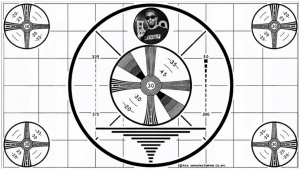When I run in the morning I listen to Morning Edition on National Public Radio.
And today I heard something that literally stopped me in my tracks.
During a report about three new TV networks targeting millennials, the executive vice president at one of them – REVOLT TV – said this: “We haven’t done any marketing and we have a successful social media platform.”
I spent the rest of my run trying to tease apart this statement. I wondered:
- Has marketing become such a dirty word that it puts off people – especially millennials – to the point where no one wants to admit that what they’re doing really is marketing?
- Do today’s digital natives regard what they do via social media as inherently more authentic than traditional marketing (it is), so much so that it shouldn’t be considered marketing at all?
- Today most ad agencies and PR firms routinely incorporate social media strategies into their programming for clients. How surprised would they be to hear that social media engagement isn’t marketing?
I’m certain by now that my bias is coming through. Marketing today is about finding authentic ways to engage audiences, using the channels that matter to them. That means a successful social media program is marketing.
REVOLT TV launches at 8 p.m. ET today and already has 44,000+ followers on Twitter, 33,333 subscribers to their YouTube channel and what looks to be a very active page on Facebook.
REVOLT TV should be proud to have earned this level of engagement without, apparently, any paid advertising support. But they shouldn’t be any less proud to call it marketing.

Great post…I think your questions 1 & 2 above go to the heart of the matter. For many consumers, “Marketing” is something that happens to someone else. I don’t think many people like to acknowledge to themselves or anyone else that they’ve been “marketed to,” because many traditional forms of marketing now seem inauthentic. But most don’t have a problem talking about an article, tweet or blog they’ve read, after having proactively engaged with the content, because those seem more authentic. Why? I agree with your statement that “Marketing today is about finding authentic ways to engage audiences, using the channels that matter to them.” I would also say that this used to apply to traditional marketing, as well. Remember the old coffee commercial, where a woman’s husband asks for a second cup of coffee at a friend’s house, and she wonders to herself “That’s strange, Bob never asks for a second cup of *my* coffee.” As dated and hokey as that seems to us now, that rang true to people back then, via one channel that mattered a lot: TV. Today, if you ran that ad, people would laugh, not only because the sentiment is dated, but the scenario seems contrived. But if that ad had never existed, and today an influential blogger wrote a post about how to improve your coffee at home so your family likes it better, I bet people would engage with it seriously. The point is I believe marketing has been and continues to be “about finding authentic ways to engage audiences, using the channels that matter to them.” But the channels have changed. And so has our sense of authenticity, thanks in part to a strain of skepticism in our culture. If we label social media “marketing,” and in the case above it certainly is, do we risk the authenticity of those channels? I hope not.
Thanks Gary. I especially like what you said here: “But the channels have changed. And so has our sense of authenticity, thanks in part to a strain of skepticism in our culture.” You’ve hit on an intangible — yet critical — aspect of marketing today.